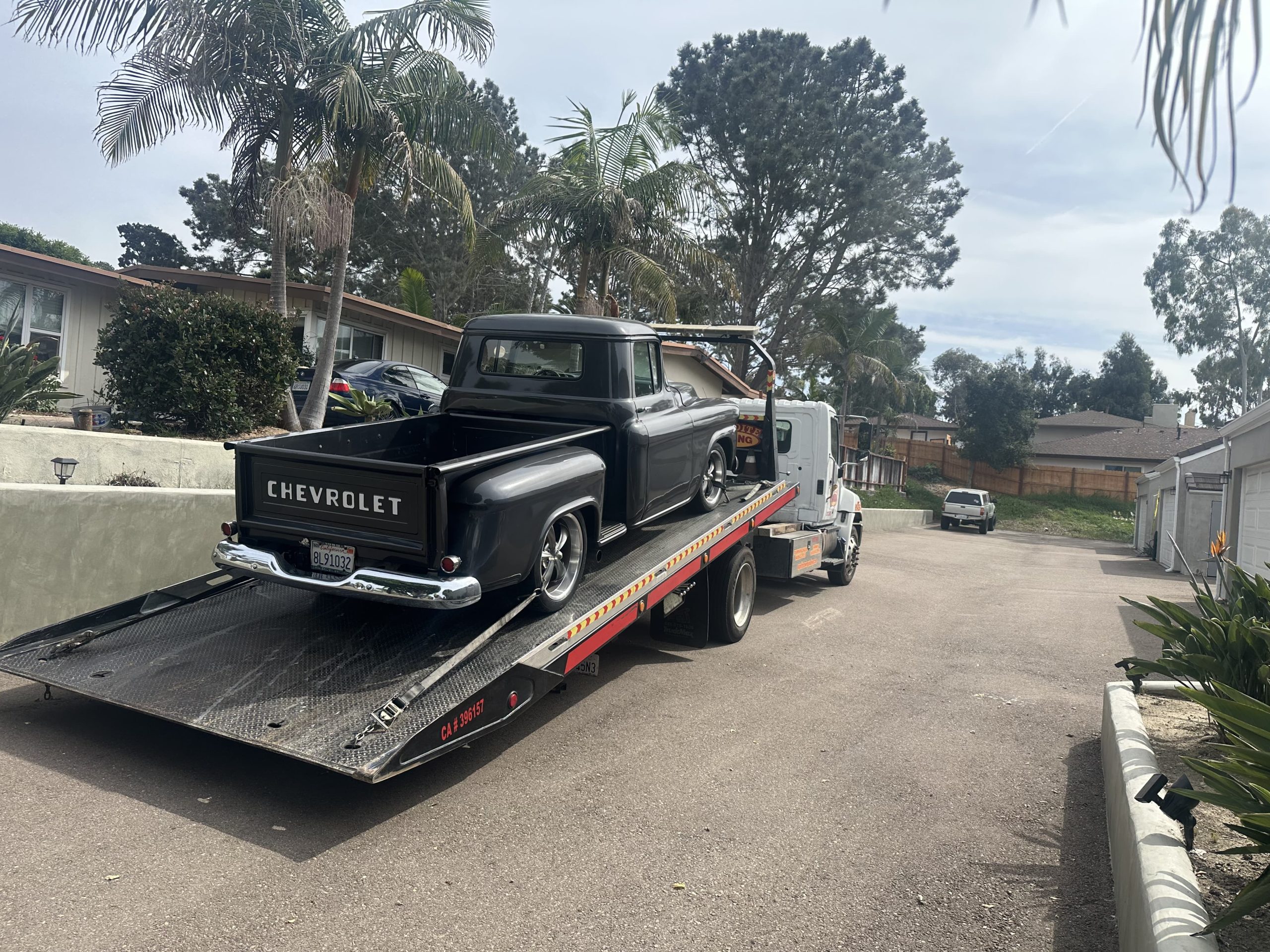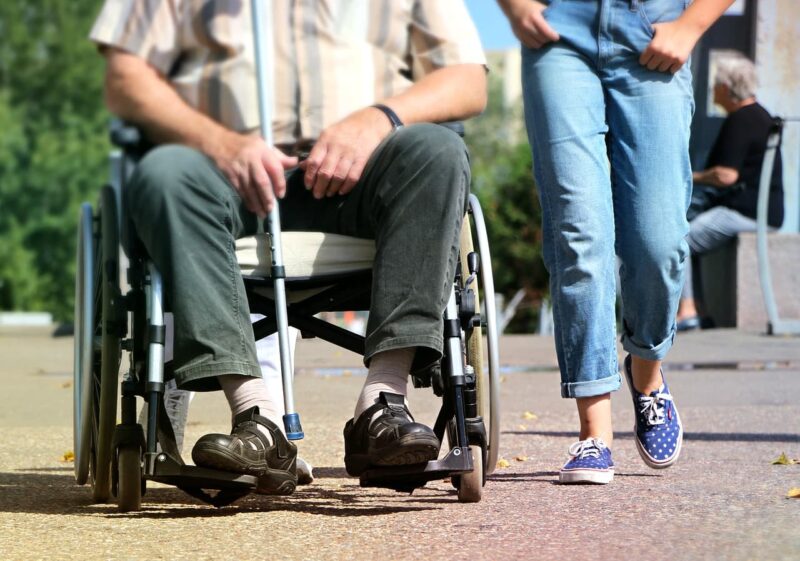How to Choose the Right Towing Company: Factors to Consider
Choosing the right towing company is crucial when you’re in a tough spot with your vehicle. It can mean the difference between a smooth rescue and a nightmarish experience.
I’ve been in the towing business for over 20 years, and let me tell you, not all tow trucks are created equal. There’s a world of difference between a professional outfit and a fly-by-night operation.
Stick with me, and I’ll share some insider tips that’ll save you time, money, and a whole lot of headaches. Trust me, by the end of this guide, you’ll be picking towing companies like a pro.
Why does this matter? Well, imagine being stranded on a dark road at midnight. Your car’s busted, and you’re miles from home. Who you gonna call? You need someone reliable, fast, and fair. That’s where knowing how to choose the right towing company comes in handy.
This guide is perfect for anyone who drives a vehicle. That’s right, if you’ve got wheels, you need to read this. It’s like insurance – you hope you never need it, but boy, are you glad you have it when you do.
Let’s dive in and unpack the secrets of choosing a top-notch towing service. Buckle up, folks. It’s gonna be an eye-opening ride!
1. Reputation is King
When it comes to towing companies, reputation isn’t just important – it’s everything. A company’s track record can tell you a lot about what to expect.
I remember once, early in my career, I made the mistake of calling the first towing company I found in the yellow pages. Big mistake. They showed up three hours late, scratched my car, and tried to overcharge me. Never again.
Here’s what you should do:
- Ask around. Friends, family, and coworkers can be goldmines of information.
- Check online reviews. Sites like Yelp, Google, and Facebook can give you the real scoop.
- Look for patterns in the feedback. If multiple people mention great service or specific problems, take note.
A study by BrightLocal found that 87% of consumers read online reviews for local businesses in 2020. That’s a lot of people doing their homework!

2. Licensing and Insurance: Non-Negotiables
This might sound boring, but trust me, it’s crucial. A properly licensed and insured towing company is your safety net.
I once heard about a guy who used an unlicensed tow truck. Long story short, his car got damaged during the tow, and he was left high and dry with no recourse. Don’t let that be you.
Here’s what to look for:
- Check if they’re licensed by your state’s transportation department.
- Ask about their insurance coverage. They should have both liability and cargo insurance.
- Don’t be shy – ask to see proof. Legit companies won’t mind showing you.
According to the National Highway Traffic Safety Administration, there were over 6 million car accidents in the US in 2019. That’s a lot of potential towing situations. Make sure you’re covered!
3. Response Time: Speed Matters
When you’re stuck on the side of the road, every minute feels like an hour. A good towing company knows this and acts fast.
I remember a freezing winter night when I got a call from a family stranded on the highway. Their car had died, and they had young kids with them. I got there in 20 minutes flat. The relief on their faces was something I’ll never forget.
What to consider:
- Ask about their average response time.
- Find out if they offer 24/7 service. Emergencies don’t keep office hours.
- Check if they have a large fleet. More trucks usually mean faster service.
A survey by J.D. Power found that the average roadside assistance response time in 2020 was 48 minutes. Aim for a company that can beat that.
4. Range of Services: Versatility is Key
Not all towing jobs are created equal. A company that offers a wide range of services is usually a safer bet.
I once got a call about a towing job, only to arrive and find out it was actually a complicated winch-out situation. Luckily, I had the right equipment. Not every tow truck driver would have.
Look for companies that offer:
- Light, medium, and heavy-duty towing
- Winch-out services
- Jumpstarts and tire changes
- Fuel delivery
According to IBISWorld, the towing industry in the US was worth $8 billion in 2021. That’s a lot of different services!
5. Pricing: Fair and Transparent
Nobody likes surprises when it comes to bills. A good towing company will be upfront about their pricing.
I’ve heard horror stories of people being quoted one price over the phone, only to be presented with a much higher bill when the job was done. That’s not just bad business – it’s downright shady.
Here’s what to do:
- Ask for a detailed quote before agreeing to service.
- Be wary of companies with prices that seem too good to be true. They usually are.
- Check if they accept your insurance or motor club card.
A 2019 study by Consumer Reports found that the average cost of a tow is $109. Keep this in mind as a ballpark figure.
6. Equipment: The Right Tools for the Job
A towing company is only as good as its equipment. Modern, well-maintained trucks are a sign of a professional outfit.
I once saw a tow truck so old and rusty, I was surprised it could tow itself, let alone another vehicle. Needless to say, I wouldn’t trust my car to that rig.
Things to consider:
- Ask about the age and condition of their fleet.
- Check if they have specialized equipment for different types of vehicles.
- See if they use GPS tracking. It can help them find you faster.
The American Towman industry survey in 2020 found that the average age of a tow truck in the US is 7 years. Newer isn’t always better, but it’s a good benchmark.
7. Customer Service: The Human Touch
At the end of the day, towing is a service industry. How a company treats its customers can make all the difference.
I’ll never forget the time I helped an elderly lady whose car had broken down. She was scared and confused. I took the time to explain everything I was doing and even called her son for her. That’s the kind of service that turns a bad day into a bearable one.
Look for:
- Friendly, patient phone operators
- Drivers who are willing to explain the process
- Clear communication throughout the service
A study by PwC found that 73% of consumers say customer experience is an important factor in their purchasing decisions. In towing, it’s even more critical.

8. Local Knowledge: Home Field Advantage
A company that knows your area like the back of their hand can be a real lifesaver.
I once had a customer whose GPS led him down an old logging road. He was stuck in the mud, miles from anywhere. If I hadn’t known the area, I might never have found him.
Consider:
- How long has the company been operating in your area?
- Do they know alternative routes to avoid traffic?
- Are they familiar with local laws and regulations?
According to the Towing and Recovery Association of America, there are over 35,000 towing companies in the US. Finding one that knows your local area can make a big difference.
9. Environmental Responsibility: Green Towing
In today’s world, being environmentally conscious is more important than ever. This applies to towing companies too.
I’ve made it a point to use fuel-efficient trucks and dispose of waste responsibly. It’s not just good for the planet – it’s good business.
Look for companies that:
- Use modern, fuel-efficient vehicles
- Practice responsible disposal of fluids and parts
- Offer eco-friendly options when possible
The EPA reports that medium and heavy-duty trucks account for 23% of greenhouse gas emissions from transportation. Choosing a green towing company can help reduce this impact.
10. Technology: Embracing the Digital Age
In this day and age, technology can make the towing experience smoother and more efficient.
I remember when we first started using a digital dispatch system. It cut our response times by almost half! Customers could track their tow truck in real-time, just like ordering a pizza.
Check if the company offers:
- Professional Website Design
- Online booking options
- Real-time tracking of tow trucks
- Digital payment methods
A survey by Clutch found that 61% of small businesses invested in technology in 2018. Towing companies that embrace tech often provide better service.
Choosing the right towing company isn’t rocket science, but it does require some thought. Remember, when you’re stranded on the side of the road, the last thing you want is to second-guess your choice of towing service.
By considering these factors – reputation, licensing, response time, range of services, pricing, equipment, customer service, local knowledge, environmental responsibility, and technology – you’ll be well-equipped to make an informed decision.
Don’t wait until you’re in a jam to start your research. Take some time now to find a reliable towing company in your area. Trust me, your future self will thank you.
Stay safe out there on the roads, folks. And remember, a little preparation goes a long way. Happy driving!…



 Try asking your loved one what their favorite meal was as a child and re-create it together. Involving your loved one in cooking processes, such as kneading dough and using cooking utensils, are great ways to engage their sense of touch. Doing these can help to improve hand-eye coordination while providing light physical exercise.
Try asking your loved one what their favorite meal was as a child and re-create it together. Involving your loved one in cooking processes, such as kneading dough and using cooking utensils, are great ways to engage their sense of touch. Doing these can help to improve hand-eye coordination while providing light physical exercise.

 No matter where you are, the last line of defense between you and accident or injury is your own body. Investing in the right clothing, footwear, and assistive gear (when necessary) can help you keep your body safe in the home and elsewhere. For seniors with aging bodies and health concerns, this is especially important. Wearing clothing that keeps the body comfortable and adequately warmed can help prevent illness like pneumonia, which can be devastating for seniors. Wearing properly-fitting shoes without heels can help prevent falls and keep the feet from developing bunions, hammertoes, and arthritis. Likewise, investing home-friendly, properly-measured walking aids can help prevent falls and other accidents in the home.
No matter where you are, the last line of defense between you and accident or injury is your own body. Investing in the right clothing, footwear, and assistive gear (when necessary) can help you keep your body safe in the home and elsewhere. For seniors with aging bodies and health concerns, this is especially important. Wearing clothing that keeps the body comfortable and adequately warmed can help prevent illness like pneumonia, which can be devastating for seniors. Wearing properly-fitting shoes without heels can help prevent falls and keep the feet from developing bunions, hammertoes, and arthritis. Likewise, investing home-friendly, properly-measured walking aids can help prevent falls and other accidents in the home.
 In the beginning of a marriage, a couple is consumed with total bliss and longing for each other and may be totally caught off guard when those feelings begin to change over time. The emotional high experienced in the early years is transformed into a deeper, more fulfilling relationship if needs are satisfied. If not, trouble soon arises.
In the beginning of a marriage, a couple is consumed with total bliss and longing for each other and may be totally caught off guard when those feelings begin to change over time. The emotional high experienced in the early years is transformed into a deeper, more fulfilling relationship if needs are satisfied. If not, trouble soon arises. Most people marry someone who is different from themselves. That is what attracts us to the other person. That person has special and unique qualities that are appealing. Instead of viewing differences as negative, think of them as positive attributes of a relationship. One spouse’s weakness is the other spouse’s strength. One may rise and shine in the morning and can get breakfast cooked, lunches packed and kids off to school easily. The other spouse who may be more alert at night can focus on homework, dinner and bedtime rituals. Use variation to enhance the relationship. Know strengths and weaknesses. Think of each other as complements of one another, balancing the relationship with each other’s strengths. You need each other to function as an effective married couple. Laugh at differences and quirks rather than grumble about them.
Most people marry someone who is different from themselves. That is what attracts us to the other person. That person has special and unique qualities that are appealing. Instead of viewing differences as negative, think of them as positive attributes of a relationship. One spouse’s weakness is the other spouse’s strength. One may rise and shine in the morning and can get breakfast cooked, lunches packed and kids off to school easily. The other spouse who may be more alert at night can focus on homework, dinner and bedtime rituals. Use variation to enhance the relationship. Know strengths and weaknesses. Think of each other as complements of one another, balancing the relationship with each other’s strengths. You need each other to function as an effective married couple. Laugh at differences and quirks rather than grumble about them.